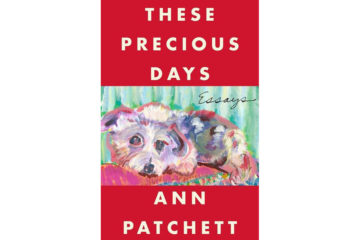Heller McAlpin in The Christian Science Monitor:
 “These Precious Days,” Ann Patchett’s generous new collection of essays, nearly all of which were previously published in periodicals, offers a burst of warm positivity. Like her first collection, “This Is the Story of a Happy Marriage” (2013), this appealing mix of the personal and the professional highlights the centrality of books, family, friendship, and compassion in Patchett’s life. At the heart of “These Precious Days” is the title essay, a tribute to a woman Patchett befriended in what turned out to be the last years of the woman’s life. Patchett, who memorialized her difficult, intense friendship with fellow writer Lucy Grealy in “Truth & Beauty” (2004), has an easier time celebrating her less complicated, serendipitous relationship with Sooki Raphael, Tom Hanks’ longtime personal assistant.
“These Precious Days,” Ann Patchett’s generous new collection of essays, nearly all of which were previously published in periodicals, offers a burst of warm positivity. Like her first collection, “This Is the Story of a Happy Marriage” (2013), this appealing mix of the personal and the professional highlights the centrality of books, family, friendship, and compassion in Patchett’s life. At the heart of “These Precious Days” is the title essay, a tribute to a woman Patchett befriended in what turned out to be the last years of the woman’s life. Patchett, who memorialized her difficult, intense friendship with fellow writer Lucy Grealy in “Truth & Beauty” (2004), has an easier time celebrating her less complicated, serendipitous relationship with Sooki Raphael, Tom Hanks’ longtime personal assistant.
Patchett’s essays often carry life lessons. What she learns from Sooki is to remember to treasure and pay attention to every precious moment. Another lesson here is about the deep gratification of extending oneself. That’s what Patchett did when she opened her Nashville home to Sooki so her new friend could participate in a medical trial not then available in her home state of California. Patchett, a born nurturer, writes that even though she barely knew Sooki at that point, “there have been few moments in my life when I have felt so certain: I was supposed to help.”
Sooki turns out to be an ideal houseguest – self-sufficient, tidy, quiet, thoughtful. When the pandemic hits, they go into lockdown together with Patchett’s husband, Karl VanDevender, a doctor who helped arrange for Sooki’s enrollment in the trial. Patchett spends her days writing or packing books to ship from her closed bookstore. Between treatments, Sooki finally gets to devote herself to her passion: painting. The two women practice yoga and cook vegetarian meals together. “Most of the writers and artists I know were made for sheltering in place,” Patchett writes. “The world asks us to engage, and for the most part we can, but given the choice, we’d rather stay home.”
More here.
